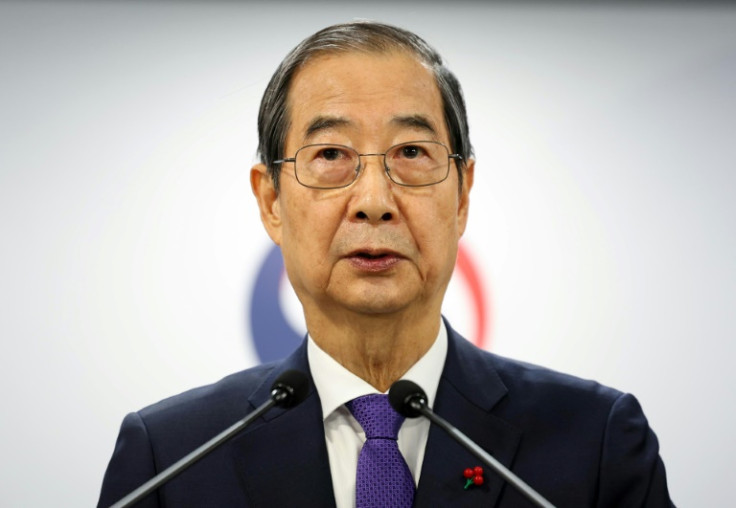
South Korea's acting president faced an impeachment vote on Friday, as the country struggled to shake off political turmoil sparked by his predecessor's martial law declaration that shocked the world.
Acting president Han Duck-soo took over from President Yoon Suk Yeol, who was suspended following a parliamentary vote over his move to impose martial law on December 3.
But opposition MPs now want Han, the prime minister, removed from office too, arguing that he is refusing to accede to demands to complete Yoon's impeachment process and to bring him to justice.
In the impeachment motion put before parliament, the opposition said Han is "intentionally avoiding the special investigation to probe those involved in the insurrection and has clearly stated his intention to reject the appointments of three Constitutional Court judges".
Such actions, the motion said, are "in violation of a public official's duty to uphold the law... and serve the public".
If the opposition succeeds in its bid, South Korea will see its second impeachment of a head of state in less than two weeks, further destabilising its vibrant political scene.
It will also mark the first time South Korea has impeached an acting president.
Finance Minister Choi Sang-mok would step in as acting president in Han's place.
At the heart of the current row is the composition of the Constitutional Court, which will decide whether to uphold parliament's decision to impeach Yoon.
The court is currently short of three judges. While it can go ahead with its six members on the bench, a single dissenting vote would reinstate Yoon.
The opposition wants Han to approve three more nominees to fill the nine-member bench, something that he has so far refused to do, essentially leaving both sides in deadlock.
Han's refusal to formally appoint the three judges "revealed his true colours", said Democratic Party lawmaker Jo Seoung-lae.
The refusal "is a direct challenge to the Constitution and the law", said Jo, adding the party would seek to impeach Han to "restore constitutional order and stabilise state affairs".
Han has said that he would certify the judges' appointments only if his ruling People Power Party (PPP) and the opposition reach a compromise on the nominees.
"The consistent principle embedded in our constitution and laws is to refrain from exercising significant exclusive presidential powers, including the appointment of constitutional institutions," Han argued.
"A consensus between the ruling and opposition parties in the National Assembly, representing the people, must first be reached," added the 75-year-old career bureaucrat.







